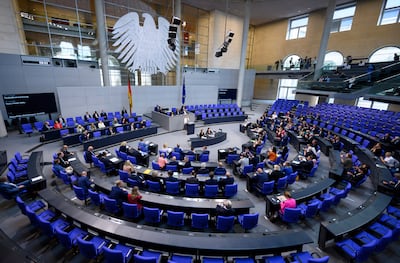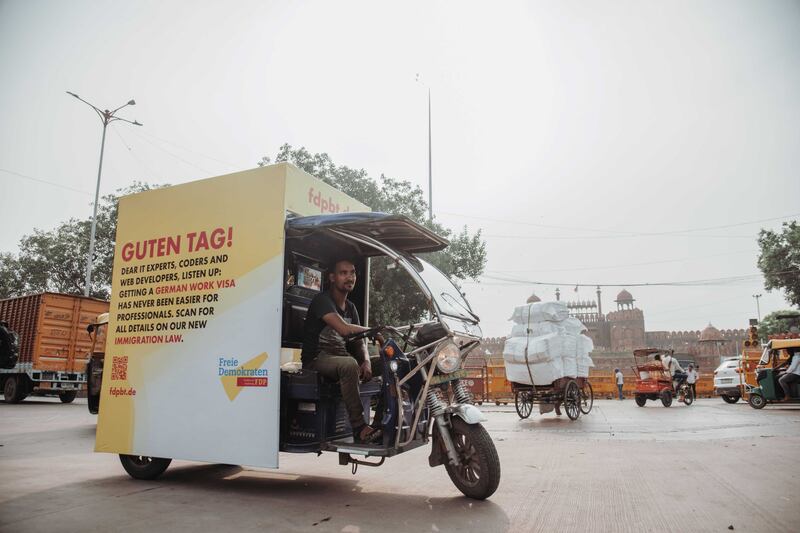Germany is recruiting for migrants – with the help of a New Delhi rickshaw.
A three-wheeler hired by one of Germany's ruling parties tells IT workers in India: “Getting a German work visa has never been easier”.
The stunt came as MPs in Berlin passed a law throwing Germany's doors open for economic migrants.
With an ageing population, Germany faces a labour shortage and is turning to foreigners to plug gaps in hospitals, social care, schools, kindergartens and the IT sector.
The shortage is “one of the biggest brakes on German economic growth”, Interior Minister Nancy Faeser told Parliament on Friday.
Germany needs an estimated 400,000 people a year to fill gaps and the new law opens up several paths for migrants.
IT workers can show job experience to apply for a Blue Card residence permit even if they do not have a degree.
Migrants who score highly on a new points system can get an “opportunity card” that lets them come to Germany and seek trial shifts.
Points can be accumulated for speaking English or German, having qualifications and being under 35.
A recruitment drive from non-EU countries in the Western Balkans is being widened with the number of visas doubled to 50,000 a year.
Rules are being relaxed on skilled migrants bringing their parents to Germany.
And asylum seekers who arrived before March 29 may be able to switch their application to a work visa if they are qualified.
The cut-off point has been set to head off opposition claims that the new law will encourage speculative asylum claims.
“Dear IT experts, coders and web developers, listen up: getting a German work visa has never been easier for professionals,” reads the rickshaw message in English.
It invites Indians to scan a QR code to learn about the new immigration law, which passed by a 388-234 vote in Parliament.

Ann-Veruschka Jurisch, an MP from the business-friendly Free Democrats behind the rickshaw stunt, said the Western Balkans arrangement could be widened to other parts of the world.
In return Germany is likely to demand measures to block irregular migration. Ms Faeser this week visited Tunisia where many citizens have claimed asylum in the EU.
“Germany is clearly positioning itself as a modern immigration nation on the international labour market,” Ms Jurisch said.
The opposition said Chancellor Olaf Scholz's government was opening the door to unskilled migrants.
Andrea Lindholz from the centre-right Christian Democrats said ministers were sending the “wrong signal” amid concerns about illegal migration.
She condemned the lowering of a language skill threshold so that some migrants, she claimed, would need to speak only 300 words of German.
The far-right Alternative for Germany (AfD) strongly condemned the new law and called for jobs to be filled by unemployed Germans.
Concerns over migration and have been blamed in part for a polling bounce for the AfD, which surpassed Mr Scholz's Social Democrats in a new survey on Thursday.
“Our problem is not that there are too few people in our country,” far-right MP Norbert Kleinwaechter said.







